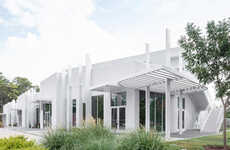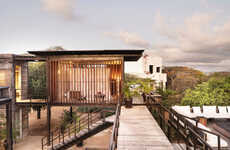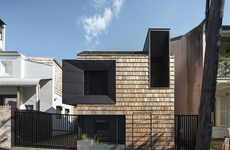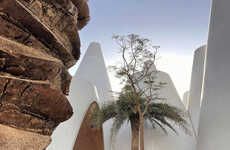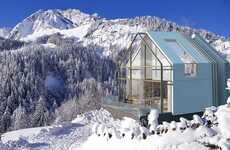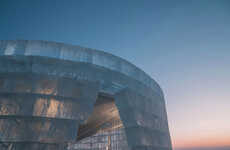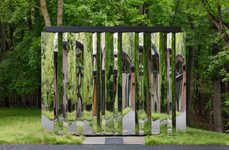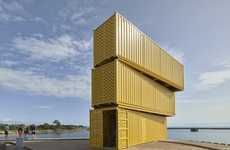
The 'Ice Box Challenge' Pits Passive Houses Against Normal Ones
References: iceboxchallenge & archinect
Many modern architects are more concerned with environmentally friendly building practices than they are with creating aesthetically pleasing forms, and the Ice Box Challenge is a testament to the potential that eco-architecture could have all over the world. The challenge is simple: during the peak of summer, one ton of ice will be placed in two houses -- one designed according to local building codes and one to the "passive house standard" -- and after 18 days, people will get to see which house did a better job of keeping in the cold and keeping out the heat.
The Ice Box Challenge is taking place in Brussels, Vancouver, Seattle, and New York City. Throughout the course of the challenge, both houses will be open to the public, allowing people to see firsthand the environmental benefit that passive houses have.
Image Credit: Ice Box Challenge
The Ice Box Challenge is taking place in Brussels, Vancouver, Seattle, and New York City. Throughout the course of the challenge, both houses will be open to the public, allowing people to see firsthand the environmental benefit that passive houses have.
Image Credit: Ice Box Challenge
Trend Themes
1. Eco-architecture - The movement towards creating aesthetically pleasing forms that are also environmentally friendly presents an opportunity for innovation in building materials and practices.
2. Passive House Design - Designing buildings to the 'passive house standard' presents an opportunity to create buildings that are both energy efficient and comfortable for occupants.
3. Sustainable Building Performance - Measuring sustainable building performance using initiatives such as the Ice Box Challenge presents an opportunity to improve energy efficiency and reduce environmental impact.
Industry Implications
1. Architecture - Architects have an opportunity to prioritize environmentally friendly building practices and determine how to incorporate these practices into their work.
2. Construction - The construction industry has an opportunity to prioritize energy efficiency and incorporate sustainable building materials and practices into their work.
3. Real Estate - Real estate developers have an opportunity to prioritize sustainable building practices and design their buildings with a focus on energy efficiency to attract environmentally conscious tenants.
0.8
Score
Popularity
Activity
Freshness


